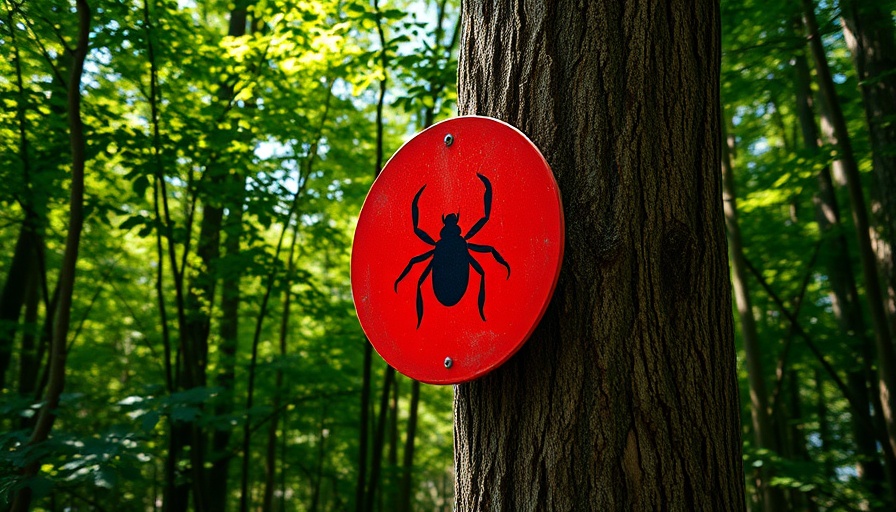
Invasive Tick Species Poses New Threat in Massachusetts
Massachusetts is facing a growing health dilemma with the invasion of the Asian longhorn tick, a species recently identified as a carrier of the disease Ehrlichiosis. First spotted in New Jersey in 2017, this tick has made its way to 24 states, raising concerns among health officials about its potential impact on public health.
Understanding Ehrlichiosis and Its Symptoms
Ehrlichiosis, transmitted by these ticks, can lead to various flu-like symptoms such as fever, chills, headache, and muscle aches within two weeks of a tick bite. While cases of this tick-borne disease were relatively low in the past, the incidence has dramatically increased, from 200 reported cases in 2000 to 2,093 in 2019, highlighting the need for vigilance amidst changing environmental conditions.
The Role of Climate Change in Tick Expansion
Experts warn that climate change is contributing to this health crisis by enabling ticks to survive longer in the warmer months. Goudarz Molaei, a researcher at the Connecticut Agricultural Experiment Station, notes that these ticks may thrive almost year-round due to milder winters. This increased longevity means higher chances for humans to encounter them, raising the likelihood of infections.
What Can You Do to Stay Safe?
Preventive measures are key to reducing the risks associated with these invasive ticks. Experts recommend wearing protective clothing when outdoors, using insect repellent, and performing tick checks on yourself and pets after spending time in wooded or grassy areas. Awareness is vital in combating the spread of tick-borne diseases.
Connecting Communities and Nature Safely
As outdoor activities become a cherished part of life in Massachusetts, understanding how to coexist with nature safely is essential. Events and educational programs surrounding tick awareness could improve community health practices while still enjoying the beautiful parks and landscapes Massachusetts offers.
Keeping an eye on the situation of the Asian longhorn tick and staying informed is vital for everyone. Engage with your local health departments and follow safety guidelines to protect yourself and your loved ones against potential hazards while enjoying the great outdoors.
 Add Row
Add Row  Add
Add 




Write A Comment